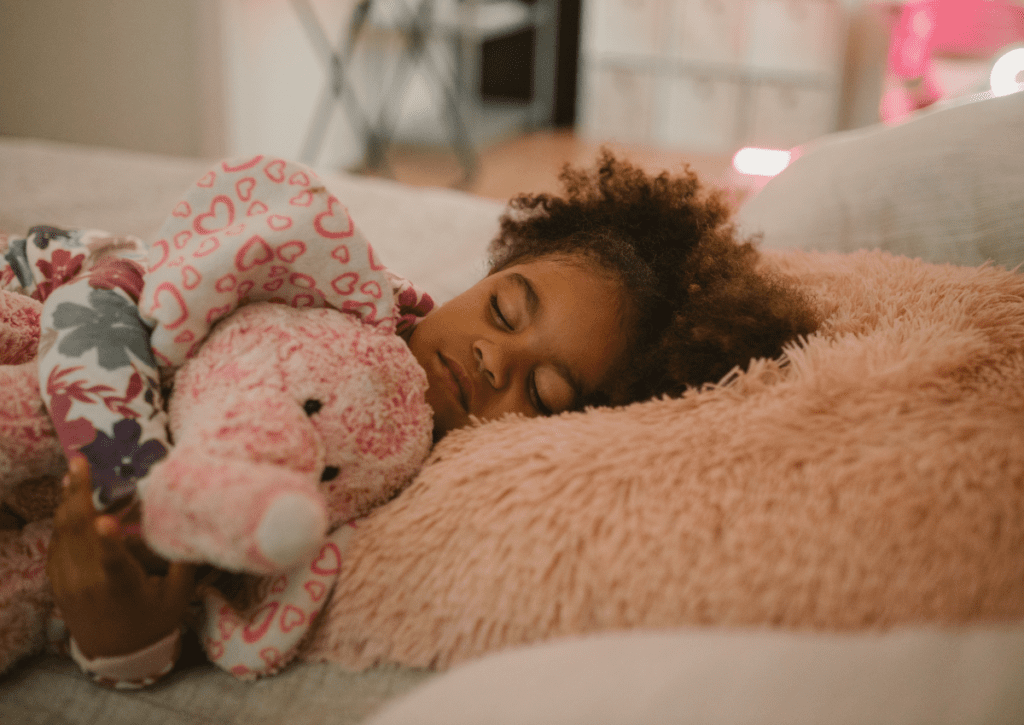
Trouble sleeping often plagues many of us due to factors such as stress, physical health, or irregular schedules. But for those on the autism spectrum, falling asleep and staying asleep is a very common and serious challenge. Additionally, sleep issues in children with autism can affect the whole family. It is crucial to address problems sleeping in children with autism not only for the child’s health but yours as well. Sleep is one of our basic needs and if it is not met properly, health issues and poor functioning may occur.
Interestingly, sleep is one of the least studied aspects of autism. However, based on the evidence we do have, we know that poor sleep is twice as common among children with autism than neurotypical children. According to a 2019 study, toddlers with autism are highly likely to have sleep issues by age 7. Consequently, sleep issues in children with autism are linked to negative behavior and lack of social skills. Needless to say, good sleep is critical for those with ASD, as poor sleep can lead to a lower quality of life and health.
Why sleep issues in individuals with autism?
Have you ever tried to fall asleep with a lawn mower outside your window, or with the lights on? Unless you’re a super heavy sleeper, it is difficult. For individuals with autism, even a crack of light or creak on a floor can feel like that lawn mower or a fully lit room, therefore disrupting restful sleep. Moreover, sensory processing issues often contribute to sleep issues in children with ASD. Sensitivity to light, sound or touch prohibit full sleep cycles from occurring.
Children with autism often battle other health conditions that can affect sleep, such as:
- ADHD
- Anxiety
- Gastrointestinal issues
- Medications (stimulants can cause insomnia)
- Genetics that affect melatonin production
How to improve sleep for a child with autism
So how do you improve sleep issues in children with autism? Consider trying out these five tips:
1. Sensory Input
Minimize sensory input as much as possible. Keep your child’s room dark, cool, and quiet. Take note of any potential distractors that may keep them awake, such as night lights, toys, room temperature (cool is ideal for sleep) and clutter. A white noise machine may also be helpful to block out any noises. Additionally, you should be aware of fabrics and linens used on your child’s pajamas and bed to ensure there isn’t a sensory aversion to textures present. If your child enjoys pressure to help them calm down and regulate, consider trying a weighted blanket.
2. Limit Screens
Turn off screens an hour before bedtime, as the blue light in screens tricks the brain into thinking it is daytime and thus time to stay awake rather than sleep.
3. Schedules
Stick to a regular schedule for falling asleep and waking up to keep the body in sync. Create a routine that starts an hour before the child needs to be in bed. Set timers as reminders for transitioning to bedtime. Practice relaxing activities such as reading together, a bath, or having a light snack.
4. Try Supplements
According to research, taking low-dose supplements such as melatonin an hour to a half hour before bed can lower insomnia in children with ASD. Controlled-release melatonin can improve falling asleep and staying asleep throughout the night. Please be sure to consult with your child’s Doctor to get their expert input before trying out any supplements.
5. Take Care of Yourself
As a parent, you are the one who is most likely running bedtime routines and dealing with nightly wake-ups, which is exhausting. Make sure to care for your well-being so you have energy to give during the day. However, we realize the challenge in helping your child stay in bed while you and your family are trying to rest. Try incentivizing techniques for your child staying in bed all night, such as a reward chart or using visuals of them sleeping. If they need someone in the room in order to fall asleep, try gradually moving out of the room a little more each night. Additionally, ensure they are getting enough activity and exercise to burn off energy during the day, resulting in better sleep at night for both them and you.
These tips are by no means a miracle cure, but with practice and patience, they have potential to decrease sleep problems and improve quality of life for your child and family alike. Remember to consult your child’s pediatrician with any sleep issues your child is experiencing. They may recommend seeing a pediatric sleep specialist or participating in a sleep study to rule out other potential causes.
